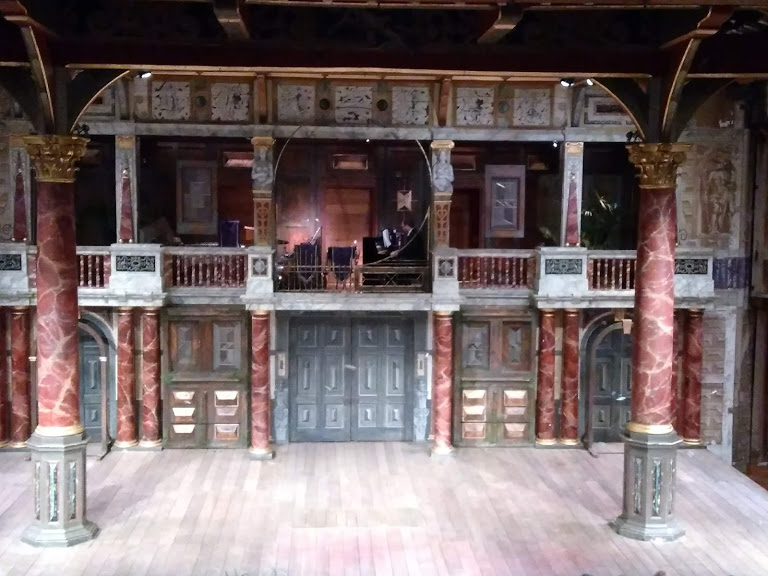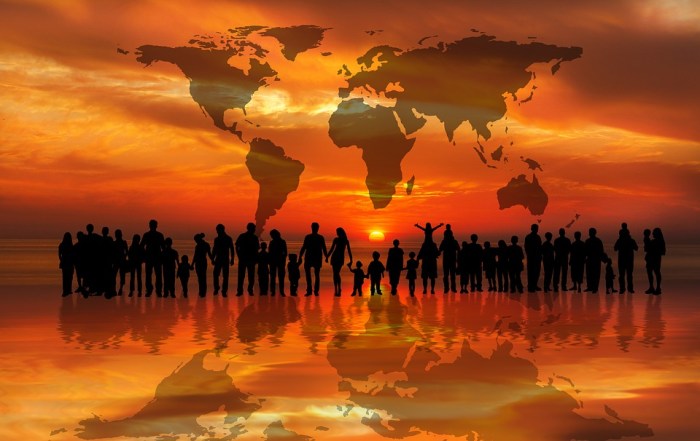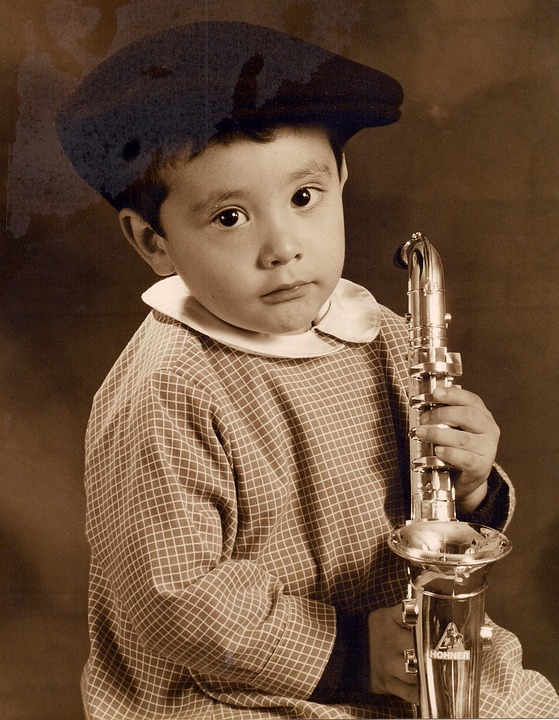If I were not African, I wonder whether it would be clear to me that Africa is a place where the people do not need limp gifts of fish but sturdy fishing rods and fair access to the pond… (Author Chimamanda Ngozi Adichie)
Wolfgang Amadeus Mozart composed over 600 musical works. Symphonies, operas, concertos, string quartets—whatever the form of music, he nailed it, starting at the tender age of five.
Not a Mozart fan? Don’t tune out just yet. This post is not about the mighty Wolfgang or Shakespeare or Isaac Newton, though they will all be mentioned. This post is about something much bigger, much more profound, and when I say something is more profound than Will Shakespeare, you know IT MATTERS.
But back to the five-year-old Mozart, composing his first works. His sister, Marianne, remembered her baby brother standing rapt at her side as their father, Leopold, taught his daughter the keyboard. So attentive was the young Mozart, that Leopold began to teach him minuets. Marianne recalled the child picking out tunes on his own.

By age six, Mozart was performing for European royalty on a series of world stages. A three-year concert tour took him to Vienna, Munich, Mannheim, Paris, London, and The Hague. On the road, he was introduced to many musicians and composed his first symphony. Joseph Haydn said of his musical contemporary: “Posterity will not see such a talent again in 100 years.”
That Mozart’s music endures and his influence has been profound is, of course, a product of his genius. It is also a result of the access he enjoyed to develop and mature that genius.
This was possible because he was already competent at both the keyboard and violin. He was competent on these instruments because his father, Leopold, was a minor composer and music teacher. Music was in the house. Instruments were readily available.

This was possible because his father played violin in the Prince-Archbishop of Salzburg’s orchestra and so had the necessary introductions to various courts.
This was possible because the family was able to travel for extended tours and made it a priority to do so.
That the 8-year-old Mozart could compose a symphony was possible because his father was able to transcribe what the child played.
Shakespeare
Will Shakespeare wrote at least 38 plays and 154 sonnets, many of which have set the standard for excellence in literature. He also penned several narrative poems that achieved great popularity during his life (Venus and Adonis was reprinted 15 times before 1640; The Rape of Lucrece enjoyed eight reprints in the same period). His works have been translated into every major language and quite a few not-so-major languages—more than 100 in all, including Esperanto and Interlingua. Four-hundred years after his death, his plays live on.

Much has been made of Shakespeare’s lack of a university education (Marlowe, for example, studied at Cambridge) to discredit his authorship, but class and status—like the variable spelling of his day—were both more and less fluid than they are now, and differently assessed. By any measure of the time, Shakespeare’s family was comfortable. His father was a landowner and a glover with his own shop, a respected citizen who enjoyed a string of appointments to various offices in Stratford, including High Bailiff—or mayor, in modern-speak. His mother’s family was even more illustrious, prominent citizens of Warwickshire dating back before the Norman Conquest. John Arden had served in the court of King Henry VII, and the Ardens had connections to the Stanleys, a family with some claims to the throne. It was in Ferdinando Stanley’s theatrical troupe, Lord Strange’s Men, that Will Shakespeare made his debut on the London stage.
Even without an Oxbridge degree, Shakespeare’s education at the Stratford grammar school would have introduced him to Latin and its renowned authors: Seneca, Ovid, Virgil, Horace. His plays and the sources he used for them display a thorough familiarity with these writers. Perhaps most significantly, he grew up within easy distance of Coventry where he saw the popular mystery and morality plays that traveled the country. That his imagination was sparked by these theatrical productions is clear in his own use of language, themes, and characters.

But, what if Shakespeare had been born a girl in a time when only daughters of noble birth enjoyed an education, and then only under the direction of a tutor in the “safety” of home? What if he’d been the son of a poor laborer instead of a middle-class official, and thus apprenticed as a child to a tanner or feltmaker? Perhaps most significant of all, what if he’d lived too far from a major town to witness the traveling mystery plays, or had no adult to take him, or no free time to spend in leisure?
Newton
Isaac Newton was born just months after Galileo died, the man whose ideas about motion Newton would expand on to form the foundation of modern physics. Newton also laid the groundwork for modern physical optics with his discovery that white light is composed of seven visible colors. Hoping to improve the refractive telescopes of his day, Newton developed a reflecting telescope that impressed the hell out of the Royal Society (the UK’s national academy of sciences) and made possible much larger telescopes without chromatic aberration. There’s a lot more one can attribute to Newton, but suffice it to note that his Philosophiae Naturalis Principia Mathematica (Mathematical Principles of Natural Philosophy, 1687) remains one of the most important works in the history of modern science.

Newton’s early life is far sketchier than Mozart’s or Shakespeare’s. His father, a prosperous but uneducated farmer, died three months before his birth, and his mother remarried two years later, leaving her young son with his grandmother while she moved to another village to raise a new family. For almost a decade, until the death of her second husband, Newton’s mother had little to do with him. His anger over her abandonment is succinctly noted in a list of his sins the young Newton recorded: Threatening my [step]father and mother Smith to burn them and the house over them.
When his stepfather died, the 10-year-old Newton found himself living with his mother and half-siblings, but the reunion was brief. He was sent to lodge with a pharmacist and his family in Grantham, five miles down the road, where he was enrolled in a grammar school. Having shipped him off, his mother soon recalled him to home to manage her estate, a job Newton hated and had no talent for. It had none of the interest or excitement of the Grantham pharmacist’s chemical library and laboratory where Newton had built mechanical devices to entertain the family’s children.
Whether or not Newton’s clumsy managing of the estate was a brilliant strategy of sabotage, an uncle persuaded his mother that Newton should return to school and prepare for university. When he was admitted to Trinity College, Cambridge, his mother refused to pay, so Newton took a gig as a servant to cover his tuition. There, he studied Aristotle and Descartes before enrolling for a master’s degree.

When an outbreak of plague interrupted his studies, he continued to pursue his own ideas in math, physics, optics, and astronomy, developing what would become his three laws of motion. (The story that a falling apple suggested the idea of gravity to him appears to be true.)
When the university reopened, Newton quickly finished his master’s degree. Impressed by his student’s amazing abilities, his mathematics professor recommended Newton replace him when he took another job, a post Newton served in for a quarter century.
Isaac Newton enjoyed access to an excellent education because he had an uncle who intervened to get him back in school, and because it was possible to pay for that education by working part-time as a servant. Without that possibility, without that uncle and that education, Newton might have tossed aside the apple that bonked him on the head, never giving it a second thought.
Access, as it turns out, is everything.
The Accidents of Life
The accidents of life—what we cannot control—can be divided into two camps: the advantageous and the not-so-advantageous. Some of these “accidents” are straightforward. Being born healthy, for instance. Or the relative position/class of one’s family. One doesn’t have to be born into great wealth to pursue one’s talents—Shakespeare’s family was solidly middle class with rising aspirations, as was Newton’s—but a certain financial and social stability offer advantages to developing children.
Though money was more of an issue for Mozart’s family, what the family lacked in bankable assets was made up for by Leopold Mozart’s connections to royal courts throughout Europe—connections he pressed to the max to launch his son. Connections that paid off because the young Mozart’s talent quickly gained wide fame, and the money the boy earned on the road helped sustain the entire family.

More variable, but equally if not more powerful in determining one’s odds in life, are where and when one is born. What are the prevailing attitudes about gender, race, ethnicity, religion (or lack of it), and education at the time of and in the place of one’s birth? What is the political situation—stability and general prosperity or social mayhem and war?
Mozart, Shakespeare, Newton—they were all men. In the Europe of their birth, women did not have access to opportunities that would help them discover/develop their true talents.
Mozart’s sister, Marianna, the one at whose knee Mozart gleaned his first understandings of music, was a talented child. She received the same musical and academic education as her brother in childhood, and played for royalty on that first European tour. She often enjoyed top billing. So, what happened?

According to The New Grove Dictionary of Music and Musicians, “from 1769 onwards, Marianna was no longer permitted to show her artistic talent on travels with her brother, as she had reached a marriageable age.” (She was fifteen.) While her brother continued touring the world, composing new works and meeting the great musicians of the day, Marianna stayed home, married the man of her father’s choice, and had children.
Mozart, Shakespeare, Newton—they were all native-born and white. In the Europe of their birth, people of color largely existed at the margins of society. And though some black men practiced trades or were musicians at court in 16th century England, Queen Elizabeth I issued proclamations complaining of their numbers, writing in 1596 to the lord mayors of the larger cities that there were “of late divers blackmoores brought into this realm, of which kind of people there are already here to manie…” She ordered that such people “should be sente forth of the land.”
Ethnicity mattered, too. Animosity toward immigrants didn’t begin with TheRUMP.

“Would you be pleased to find a nation of such barbarous temper that, breaking out in hideous violence, would not afford you an abode on earth … What would you think to be thus used? This is the strangers’ case, and this your mountainish inhumanity.”
With these words (from The Book of Sir Thomas More), Shakespeare spoke out against the hostility toward the French and Dutch Calvinist refugees who immigrated to England in the late 16th century to escape religious persecution from Catholic home governments. Denounced by English locals as “aliens” and “strangers”, these newcomers were suspected of immigrating to steal their jobs.
Mozart, Shakespeare, Newton—they were all educated. Though neither John Shakespeare nor the senior Isaac Newton could write their names, their sons grew up in an England which was becoming keenly interested in educating its young (the boys, anyway) to compete in a world of increasing technical invention and colonial bent. Without education for the middle classes, Hamlet would never have been written. Newton could not have conceived his three laws of motion.
Where we are born, when we are born, and the prevailing attitudes about the worth of people “like us” matter. They determine whether or not we have access. Whether or not we have a shot at developing our natural talents, the opportunity to fulfill our potential.
Or whether we are doomed to remain an unopened gift.
Nothing Happens in a Vacuum: Human Intervention
Many of us, perhaps most of us, would not achieve the brilliance of a Mozart or Shakespeare or Newton whatever our family circumstances, education, gender, race, ethnicity, sexual orientation, or favorite ice cream flavor. But then again, who knows? So much of the world’s population has never had the opportunity to even try. Despite Donald Rumsfeld’s claim that “stuff happens,” it doesn’t. At least not when it comes to encouraging human potential. It’s up to us to engineer access for all children in the world. Those of us who enjoy access must extend it to others. We must oppose laws/actions/candidates that deny or repeal access to anyone.

But what does that mean exactly? What is it all children need to explore their potential? A short list of the essentials includes:
1) Healthcare. This means not only access to doctors, hospitals, and medicine, but also clean water, nourishing food, and healthy living conditions both in the home and in the larger environment. I’m putting this up top because without good health, it’s difficult to survive let alone thrive.
2) Education. Globally, more than half of all school-age children cannot read, write, or do simple mathematics. Those children—617 million in all—face a daunting future. Many, if not most, doors will be closed to them. What is open to them is often unsavory in the extreme, both dangerous and deadly: Sex-trafficking. Slave labor in factories, mines, and workshops. Unpaid servitude in the private homes of the rich. Cannon fodder in this war or that. Many of these children are kidnapped. Some are sold by their parents for the price of a couple of movie tickets and a bucket of popcorn. If this sounds atrocious, it is, but desperate people do desperate things
Almost 50 years ago, the UNCF, (United Negro College Fund) rolled out one of the most famous slogans of any campaign: “A mind is a terrible thing to waste.” It is as true today as it was then. To prevent that terrible waste, all children must have access to high-quality education from pre-K through university or trade school as they choose. To quote today’s UNCF home page: “We can’t simply believe in equality in education. We have to create it.”

3) Materials. You do not become a Mozart without access to instruments. You can’t be a Van Gogh if paints and brushes aren’t available. The scientists and inventors of tomorrow need access to tools, computers, equipment. And everyone—not just the Shakespeares—needs books. On the shelves at home or from a well-stocked library or downloaded onto a digital device. Through books, a world of knowledge literally comes into a child’s grasp.
4) Enriching Experiences. The more we see of the world, the richer our points of reference become, the more profound our insights. Travel, music festivals, art galleries, museums, exposure to other cultures, different views of the human experience—they feed our imagination, expand our sense of what’s possible, increase our understanding of the world as it is, and as it could be.
5) A Safe Environment. I hesitated to add this to the list, as the conflicts—wars and genocide—of other countries are often outside our control unless our government is directly aiding and abetting the violence (as the U.S. is now doing in Turkey and Yemen). But we can try. I’m from a generation that stopped the war in Vietnam. We can try.
This post grew out of a question I’ve been asking myself for some years now: What about all the Mozarts in the world who will never see a piano?

Mozart, Shakespeare, Newton—none of them were born rich or of the ruling class, but they had the access they needed in their times, in their societies to explore, develop, achieve.
We must provide that access to all children. We must nurture the scientists and teachers and doctors and artists and farmers and bridge builders of tomorrow. They are the architects of our future. The child who will find a cure for diabetes or Alzheimer’s. The child who will discover a method to regenerate Australia’s Great Barrier Reef , thus decreasing the risk of widespread ecological collapse. The child who will write the books/paint the pictures/compose the songs that reach deep into our frightened, hopeful hearts to reveal what we’re so scared of exposing—that we are all human and therefore terribly vulnerable.
These children. That child. She/he/they could save us all.
Access. It’s the gift that keeps on giving.
NOTE: Quick update on human rights activist Scott Warren, who I wrote about in last month’s post “The Gift of Hope.” On November 21, an Arizona jury found Warren not guilty on all counts of “harboring undocumented migrants” levied against him by federal prosecutors after the geography teacher provided food, water, and shelter to two men traveling through the desert in 2018. Click here for details of the story. Happy holidays, Scott, and to all people of conscience and good will.

Brilliant. Educational, thought provoking and inspiring.
Oh for a fairer world, more equal societies and opportunities for all.
Through words you are fighting the good fight…
LikeLiked by 1 person
Thanks, Phill. “Through words you are fighting the good fight.” As a writer, I can think of no higher compliment. You made my day.
LikeLike
Your thoughts and actions all are in the right directions. If only everybody agreed! If they did, this world would be a far, far better place.
LikeLiked by 1 person
Thanks, Neil. I draw a lot of strength from every person who speaks out/stands up/resists . I was very happy to hear that Scott Warren was acquitted of all the charges against him for being a human being with a good heart and a conscience.
LikeLiked by 1 person
Amy, this is brilliant! You brighten my world! You write such clear and concise arguments for doing what is right, so that we can expose ALL children to an enlightened environment, so that they may achieve their full potential. Bravo. I must share this. It’s like you jumped into my brain and expressed every goal I tried to achieve during my 36 year teaching career. Bless you for putting your thoughts in print. Thank you!
LikeLiked by 1 person
Thanks, Lesley. I know how much of your life, your time, your SELF you put into the lucky kids in your classroom, so I’m very touched by your kind words. And grateful for you and everyone else out there fighting the good fight. It’s important to be reminded that we are not in this alone, that we have each others back. Shalom, my friend.
LikeLiked by 1 person
Brilliant essay: well reasoned, interesting, erudite, profound. When you compile your book of top essays, this one should bat lead-off.
LikeLiked by 1 person
Thanks, Ed. You know, I have more than once thought about pubbing a “best of” essay collection, so I appreciate your vote for the inclusion of this one.
LikeLike
I was introduced to your essay by my friend, Lesley. What powerful and thought provoking words. Thanks for sharing!
LikeLiked by 1 person
Thanks, Lynda. So happy you stopped by. Don’t be a stranger😄
LikeLike
This reminds me of the book Guns, Germs and Steel by Jared Diamond and his philosophy that geography is fate. Well done.
LikeLiked by 1 person
I looked up Diamond’s book. Sounds really interesting–that it won a Pulitzer is a pretty solid testament, too. Glad you liked the post. Thanks for stopping by. I always like to hear from my readers.
LikeLike
Love this! One thing struck me in particular. “The accidents of life—what we cannot control—can be divided into two camps: the advantageous and the not-so-advantageous.” I’ve focused on the accidents of life in my writing. For example, how one person takes a big setback and thrives in spite of it, while another person experiences a small setback and flounders. And then, there’s the bigger picture you explore in this piece, how geography and lack of basic support and services impacts children. How did we become a society, a world, that accepts this? As you write so eloquently, children are our future. Let’s give them a chance. ❤
LikeLiked by 1 person
I’m a BIG fan of children, which is why I chose to teach first grade after I got my M.Ed. So many kids, even in the “first world”, are lacking basic advantages, like being read to, or being taken places (other than the mall) by the adults in their lives. Often those adults didn’t have those opportunities either, and many times, they are working several jobs just to make ends meet. So, I think it’s vital that whoever we are, wherever we are, we must try to open up the world to children–on both the individual and collective level. Thanks for stopping by and sharing your thoughts.
LikeLike
I loved this post. Good job on it. Couldn’t agree with you more about where our priorities should lie.
LikeLiked by 1 person
Thanks, Lydia, for reading and taking the time to comment. One of the best things about the holiday season is that more and more people are asking that donations be made in their name to orgs who help kids around the globe instead of a gift–I mean, how many sweaters do any of us really need?–from family members and friends.
LikeLike
Long but worth the read. I was just listening to a podcast yesterday that reminded me that Ada Lovelace was the daughter of Lord Byron. Reading between the lines it sounded like it was her mother’s mathematical brilliance that drew Byron to her. Thankfully she was able to ‘express her gift’, as they say, even though it was a long time before she was recognized for her contributions. Anyway – great post. Thx for sharing.
LikeLiked by 1 person
Thanks, Lissa, for taking the time to read and comment. I’m going to look up Ada Lovelace and her mother. For people who weren’t appreciated in their lifetime–Van Gogh, Thoreau, Mendel, most women–you have to hope the satisfaction of the actual work made up, at least somewhat, for the disappointment over lack of recognition. But to have no satisfaction at all, no opportunity for engaging one’s talents, no chance of even discovering what they might be–it’s a terrible waste in which we all lose.
LikeLike